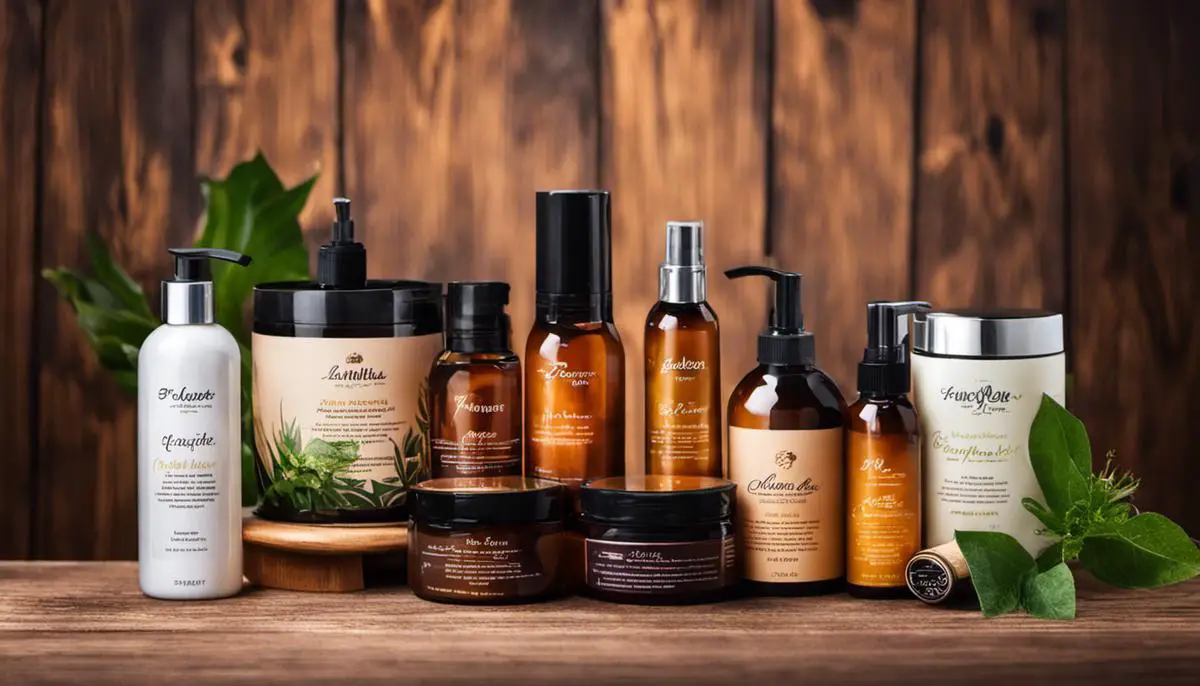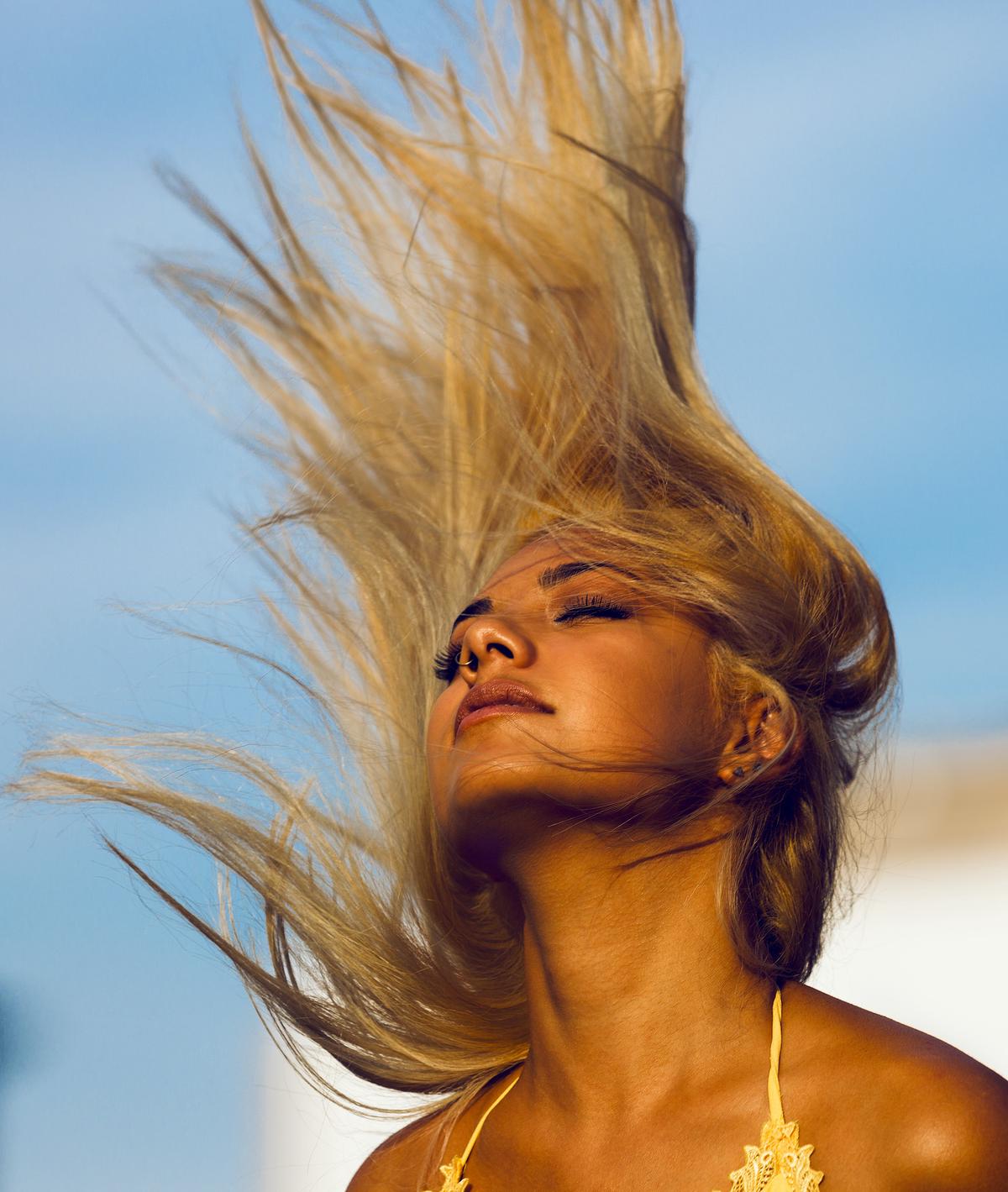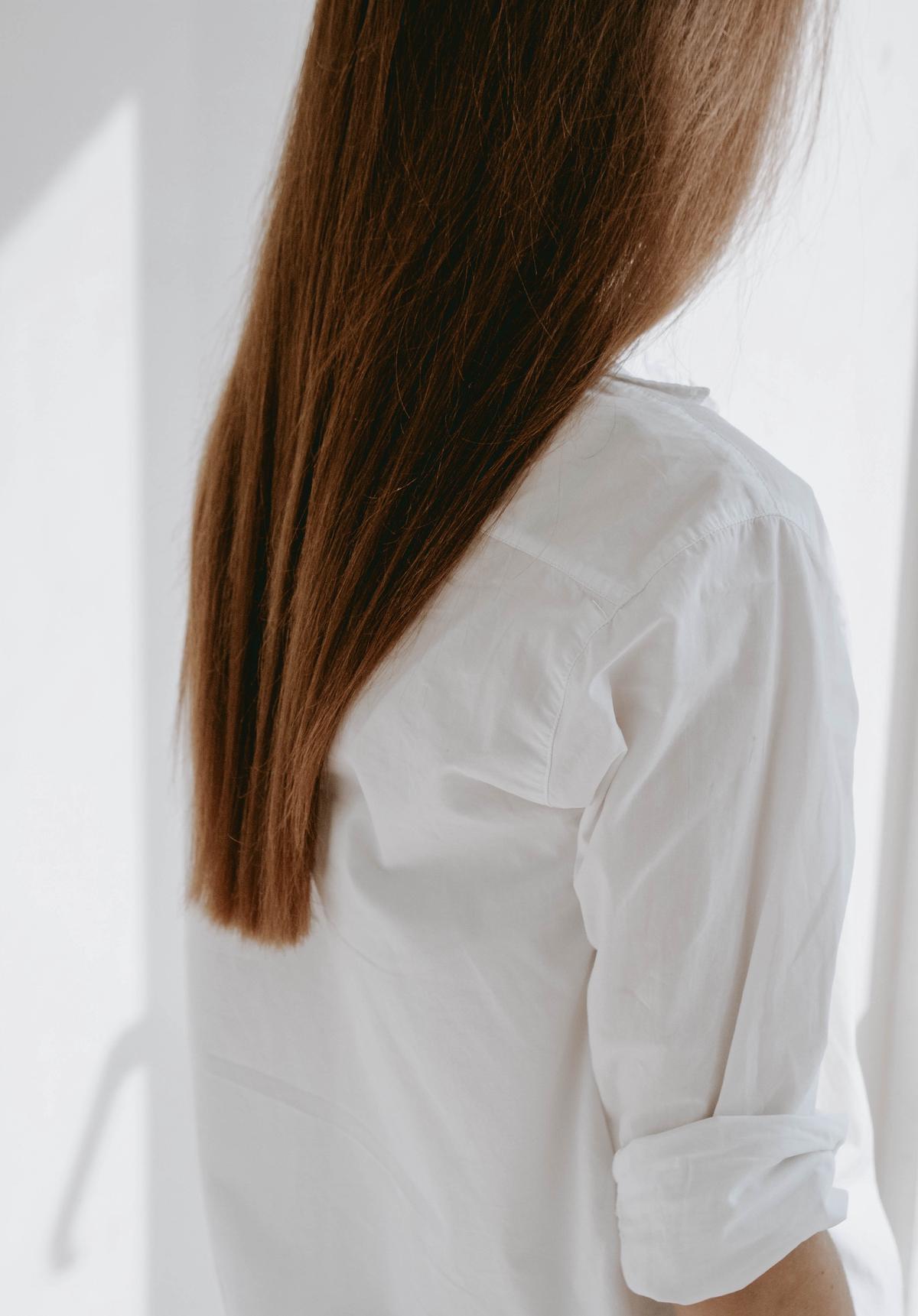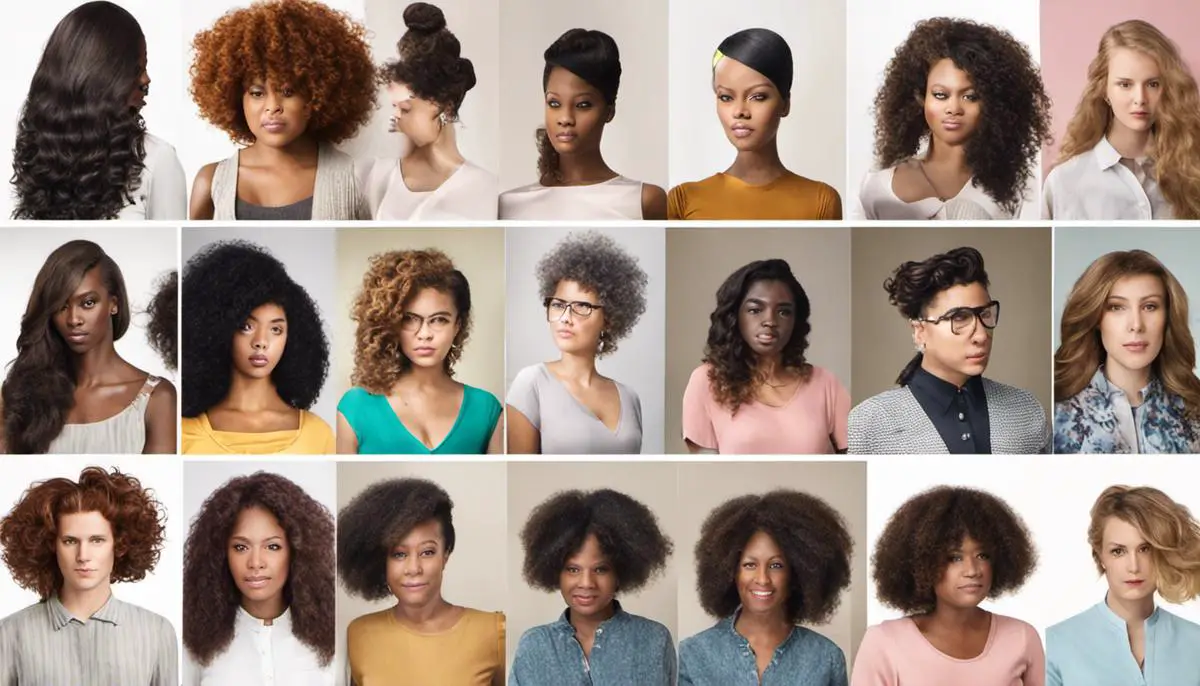Embracing the beauty and power of African hair requires understanding its specific needs, choosing the right products, and creating an effective care routine. Deep-rooted in heritage and rich in texture, African hair boasts a unique structure that calls for special attention and products tailored to its needs. Utilizing natural products like essential oils and nourishing butters not only caters to its characteristics but also promotes overall health and vitality. The journey towards masterful African hair care encompasses researching beneficial products, establishing a hair care routine, making homemade solutions, and dealing with hair issues—all in a natural and holistic way. Let’s embark on this enlightening journey, empowering you with the knowledge and skills necessary to celebrate and care for African hair using the best nature has to offer.
Understanding African Hair
Understanding African Hair: The Unique Structure
It is important for individuals to understand the unique structure of African hair to effectively care for it. African hair is typically more curved and coiled than other types of hair. This makes it more prone to dryness, breakage, and damage as the natural oils from the scalp struggle to coat the entire length of hair. The shape of hair follicles in African hair also contributes to its unique texture and requires special attention.
Needs of African Hair
African hair needs extra hydration due to its dry nature. It requires consistent moisturizing to prevent breakage and maintain elasticity. African hair is also prone to shrinkage, which can lead to tangles and knots if not properly managed. It often needs gentle handling, minimum heat exposure, and regular deep conditioning to preserve its health and sheen. Additionally, African hair operates on a slower growth cycle than other hair types, which requires patience and maintenance for length retention.
Using Natural Products for African Hair
Natural products are ideal for maintaining African hair due to their gentle and nourishing properties. They provide the much-needed vitamins and minerals that are essential for hair health. Natural oils like coconut oil, jojoba oil, and avocado oil are excellent for sealing in moisture and preventing hair damage. Shea butter and aloe vera can both soothe the scalp and condition the hair. Raw organic honey, which is a natural humectant, can help retain moisture in the hair. Apple cider vinegar can be used to balance the pH level of your hair and cleanse excessive build-up, while using less chemicals than many commercial shampoos.
How To Care For African Hair Using Natural Products
Start by washing your hair once or twice a week with a gentle, natural shampoo. Avoid shampoos that contain harmful chemicals that strip the hair of its natural oils. Follow up with a conditioner that is rich in natural oils and ingredients. Deep condition your hair at least every two weeks using a mixture of natural oils and butters.
To moisturize your hair, use a leave-in conditioner after every wash and follow it up with a natural oil to lock in the moisture. Avoid heat styling as much as possible, as this can lead to dryness and damage. Instead, opt for protective styles such as braids, twists, or updos that do not require heat styling.
Regularly massaging your scalp improves blood circulation and promotes healthy hair growth. Scalp massages can be done using a mixture of essential oils such as peppermint, lavender, and rosemary diluted with a carrier oil like sweet almond oil or coconut oil.
Remember, African hair is unique and beautiful and should be handled with patience, care, and most importantly, with love.

Choosing the Right Natural Products
Researching Natural Hair Products
When choosing natural products for African hair, it’s crucial to understand the different types available and how they can benefit your hair. Essential oils, for example, provide a range of benefits. Jojoba oil closely resembles the natural oil produced by your scalp, helping to regulate oil production and moisturize the hair. Coconut oil penetrates the hair shaft to moisturize from within, reducing hair breakage and improving shine. Almond oil, rich in vitamins A, B1, B6 and E, nourishes and strengthens the hair.
Natural butters are another important component in caring for African hair. Shea butter moisturizes dry and brittle hair, giving it a healthy shine. It also seals in hydration, which is crucial for hair with a tighter curl pattern, as this hair structure tends to dry out more quickly.
Mango butter rich in fatty acids and antioxidants, supports hair growth, protects against sun damage, and aids in the reduction of hair breakage.
Choosing the Right Products for Your Hair Type
Before deciding which natural products to incorporate into your hair care regimen, think about your hair’s specific needs. Is it dry and brittle, or perhaps oily and weighed down? Some oils can be heavier, leading to oil build-up in certain hair types, so it’s crucial to choose one that is suitable for your hair’s texture and condition.
Reading Product Labels
When purchasing natural products, make sure to read the labels thoroughly. Ideally, the product you choose should list Aloe Vera, coconut oil, jojoba oil, almond oil, shea butter, or mango butter as one of the first few ingredients. These ingredients should not be followed by harsh sulfates, parabens, or synthetic fragrances. Look for products that are labelled as natural, organic or free from harmful chemicals.
Patch Test
Before incorporating a new product into your hair care routine, it’s recommended to do a patch test first. Rub a small amount of the product on your wrist or behind your ear and wait for 24 hours. If no reaction occurs, the product is likely safe for you to use.
Consistency is Key
Remember that introducing natural products into your hair care routine is not a one-time miracle solution. Proper hair care requires consistency. Make sure to moisturize and seal your hair with your choice of natural oils or butters regularly to keep it healthy and vibrant.
Taking care of African hair using natural products requires a good understanding of these products, knowing your specific hair needs, and being consistent with your care routine. Choosing the right natural products for your African hair type can result in healthier, stronger, and more beautiful hair.

Creating a Hair Care Routine
Understanding the Unique Needs of African Hair
African hair is typically characterized by its distinct texture and curl pattern. It is prone to dryness, breakage, and needs extra care for it to retain its health and shine. The use of natural products in maintaining African hair is advised, as these products are gentle on the hair and scalp, do not strip the hair of its natural oils, and often provide a number of beneficial nutrients.
Preparing Your Hair for a Routine
Start your routine by detangling your hair with a wide-toothed comb. This will make the washing process easier and prevent additional breakage. Always detangle from the ends upwards to the roots to minimize damage.
Deep-Conditioning African Hair
Deep-conditioning should be an essential step of your weekly hair care routine. Natural deep-conditioners such as coconut oil, Shea butter, or avocado can nourish and strengthen African hair. Apply the conditioner to your hair, cover it with a plastic cap, and leave it on for about 30 minutes to an hour. Riniece the conditioner, taking care to eliminate all the product to prevent buildup.
Moisturizing Your Hair Regularly
African hair tends to lack the necessary moisture due to its unique structure, which makes it harder for the naturally produced scalp oils to travel down the hair shaft. Therefore, regular and effective moisturizing is a must.
To moisturize effectively, find a cream-based natural moisturizer that contains ingredients like Shea butter, aloe vera, or jojoba oil. Remember to apply your moisturizer in sections to ensure even distribution. Regular use of a leave-in conditioner can also be beneficial in maintaining moisture balance in African hair.
Practicing Protective Styling
Protective styling helps to prevent breakage and promotes length retention by keeping the ends of your hair tucked away. Styles such as braids, twists, up-dos, and cornrows can provide this protection. When done properly, these styles also make it easier to maintain your hair throughout the week. It’s crucial, however, to take breaks between long-term protective styles to avoid excessive tension that can lead to hair loss.
Changing Your Routine Based on Your Hair’s Specific Needs
It’s crucial to understand that everyone’s hair is unique and might need different types of care. You might discover that your hair loves certain natural oils, while others weigh it down. Experiment with different natural products and discover your hair’s personalized routine.
Coily or kinky hair, for example, generally requires more hydration. Finnier, wavy hair may become oily quickly and might benefit from lighter moisturizers. If your hair feels dry despite regular moisturizing, it might require deep conditioning more frequently. Tailor your routine to cater to your hair’s individual needs.

Photo by armedshutter on Unsplash
DIY Natural Hair Care Recipes
DIY African Hair Shampoo
To kickstart your natural hair care journey, you can begin with a DIY African hair shampoo. To create an effective natural shampoo for African hair, blend together 1 ripe banana, almond milk (or distilled water), 2 tablespoons of raw honey, and optional essential oils such as lavender or rosemary for scent. The honey aids in moisture retention, and the banana provides necessary vitamins and minerals to maintain hair health.
To use: Wet your hair and apply the mixture as you would regular shampoo. Allow the mixture to sit in your hair for about 5 minutes, then rinse thoroughly. This natural shampoo can be used once or twice a week.
DIY Hair Conditioner for African Hair
Conditioning is vital in African hair care as it provides much-needed moisture. A natural and effective conditioner is a mix of unrefined coconut oil, raw honey, and an egg. Combine two tablespoons of coconut oil, one tablespoon of honey, and one egg. Apply the mix to your hair after shampooing, let it sit for 30 minutes then rinse off. This blend of ingredients strengthens, moisturizes and adds shine to your hair. It’s recommended to use this conditioner weekly.
DIY African Hair Detangling Spray
Africans hair fans out often. Solve this by making a DIY detangling spray. Here’s how: Mix a cup of distilled water, a tablespoon of your favorite conditioner and a few drops of optional essential oils in a spray bottle. Shake well until all the ingredients are well combined. You can spray this onto your hair whenever you need to detangle, and it can be used daily if needed.
DIY Hair Growth Serum
Many natural ingredients can stimulate hair growth. A simple yet effective hair growth serum can be made from castor oil, coconut oil, and essential oils. Mix together equal parts of castor oil and coconut oil, then add a few drops of rosemary, peppermint, or lavender essential oils. Apply this mixture to your scalp, massage gently, and leave it on for at least an hour before washing. Use this serum twice a week.
DIY African Hair Deep Conditioner
Deep conditioning is crucial for maintaining the health and luster of African hair. To make a DIY deep conditioner, mash one ripe avocado and mix it with 2 tablespoons each of olive oil, shea butter, and honey. Apply this paste to your hair, ensuring all strands are coated from root to tip. Let the mask sit on your hair for 30-45 minutes before rinsing with warm water. Deep condition your hair every 1-2 weeks.
Remember, consistency is key when taking care of your hair using natural products. Over time you’ll see positive changes. Also, pay attention to your hair’s response to these treatments, as everyone’s hair is different.

Photo by liubovilchuk on Unsplash
Dealing with Hair Issues Naturally
Understanding the Root Causes of Hair Issues
One of the main issues with African hair is its inherent fragility. Because of its tightly coiled structure, it’s more prone to breakage and dryness. The scalp also produces less oil, leading to dryness exacerbating these issues. Moreover, these hair types may also suffer from slow growth due to factors such as poor nutrition, inadequate hair care practices, and underlying medical conditions.
Natural Remedies for African Hair Breakage
The best way to prevent breakage is to maintain a protein-rich diet, as hair is made of keratin, a form of protein. Foods like eggs, beans, and nuts can help improve your hair’s structure.
When it comes to dealing with breakage superficially, coconut oil is recommended. You can apply it to your hair and scalp, cover with a shower cap, and leave it overnight. Rinally, rinse it off the next morning.
Remember that constant combing or brushing is harmful to African hair due to its curl structure. Therefore, only comb your hair when it’s semi-dry or laden with a conditioner.
Treating Dryness Naturally
One common natural product that is effective against dryness is avocado. Mash a ripe avocado and mix it with one tablespoon of olive oil. Apply this mixture to your hair and leave it on for 30 minutes before washing it off. The oils in avocado are beneficial to hair, leaving it soft and moisturized.
Aloe Vera is another excellent natural product for treating dry hair. You can extract the gel from a fresh aloe plant or buy a natural aloe vera gel. Apply it directly to your hair and scalp and leave it on for a few hours before washing it off. Aloe Vera hydrates the hair and balances pH levels on the scalp.
Improving Hair Growth with Natural Products
Healthy hair growth starts from within, so ensure you are eating a balanced diet with enough vitamins and minerals. Iron-rich foods like spinach and proteins are particularly helpful in promoting hair growth.
One way to stimulate hair growth externally is by doing a scalp massage with essential oils. Use oils like peppermint or lavender, dilute them with a carrier oil like jojoba or coconut oil, then gently massage it into your scalp. This increases blood circulation, providing nutrients to the hair follicles.
Lastly, rosemary oil acts as a natural hair growth booster. Simply mix a few drops with a carrier oil and massage it into your scalp every other day.
Adopting Proper Hair Care Practices
Understanding your hair type is essential so as to adopt proper care techniques. With African hair, opt for protective hairstyles that limit hair exposure to reduce the risk of damage.
Deep conditioning treatments should be a regular part of your hair care routine. You can make your own conditioner using ingredients like bananas, coconut milk, and honey. This will help to keep your hair moisturized and strong.
Furthermore, ensure that you are drinking plenty of water and getting regular exercise to nourish your hair from the inside out. Not only will this help with hair growth, but it will also promote overall health.

Armed with this knowledge now, high-quality care for African hair no longer needs to be a mysterious or daunting task. Every strand of dryness, every instance of breakage, and each challenge of slow growth can be addressed and better managed through the power of natural products and practices. Harnessing the benefits of essential oils, harnessing the richness of natural butters, and creating DIY remedies, tailored to your hair needs, are affirmative steps towards a healthier, more vibrant mane. Remember, taking care of African hair is not merely a regimen; it’s a journey of learning, understanding, and celebrating the uniqueness of your hair. Continue to explore, learn, and experiment with natural solutions because your hair is not just your crown—it’s your natural heritage, your self-expression, and your pride.

Leave a Reply